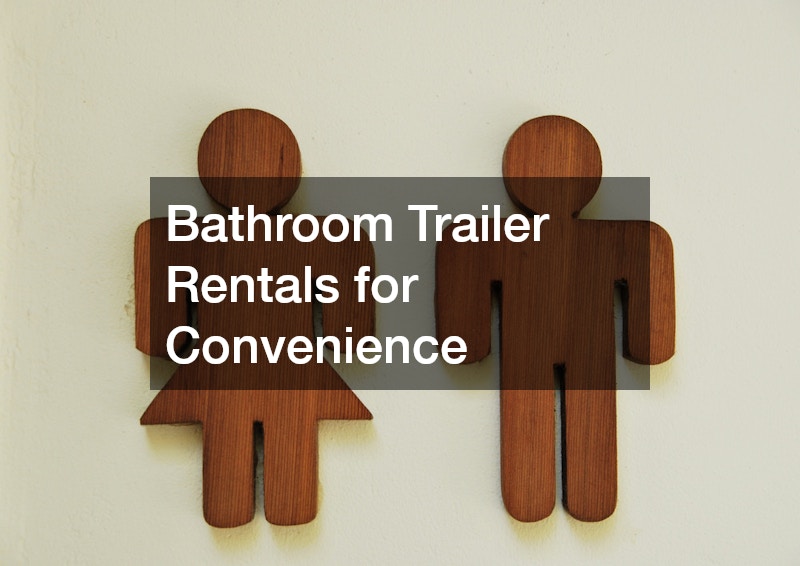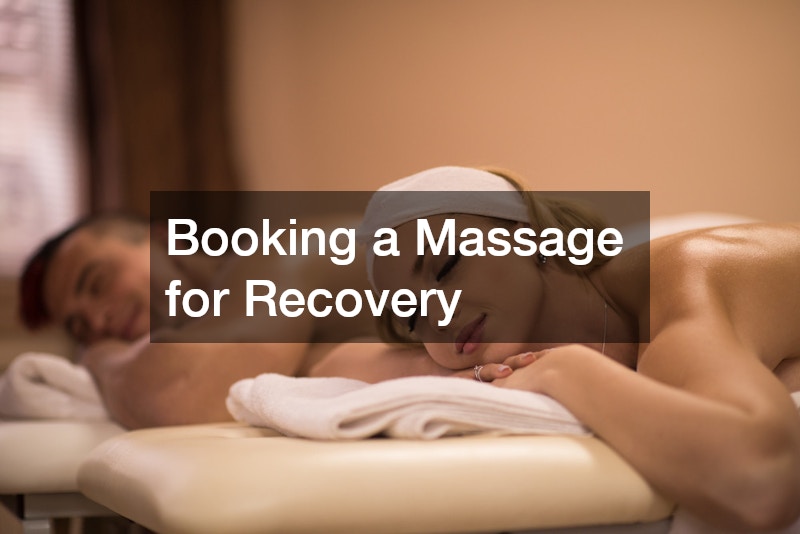Off-road adventure planning offers a thrilling escape into the wild, where you can explore rugged terrains, remote wilderness, and scenic landscapes. However, the excitement of adventure should not come at the cost of comfort and safety. Whether you’re an experienced off-roader or a novice eager to explore the great outdoors, planning ahead is key to making the most of your journey. By utilizing the right services and taking proper precautions, you can enhance your off-road experience while ensuring comfort and minimizing risks.
In this guide, we’ll walk through the essential steps for off-road adventure planning with comfort and safety in mind. We’ll cover everything from choosing the right tour company to finding local emergency clinics. With specific, actionable advice for each step, you’ll be well-equipped to enjoy a stress-free and memorable off-roading experience.
1. Choosing the Right Off-Road Tour Company

When planning an off-road adventure, one of the first things to consider is whether to go it alone or hire a professional tour guide. Off-road tour companies can significantly enhance your experience, especially if you’re new to the sport or unfamiliar with the area. These companies offer a wealth of knowledge, ensuring that your adventure is both exciting and safe.
A reputable off-road tour company can offer a variety of benefits, such as experienced guides, local expertise, and access to exclusive trails that might be difficult to navigate on your own. In addition, they are well-equipped to handle emergencies, which is crucial in remote areas where help may not be readily available.
- Do your research: Look for off-road tour companies with good reviews and a strong safety record. Many companies are accredited by professional organizations, which ensures they meet specific safety standards.
- Ask about equipment and safety measures: Ensure that the company provides high-quality vehicles, safety gear, and proper training for participants. Inquire about the types of terrain they specialize in and make sure it aligns with your interests.
- Check for insurance and emergency support: Make sure the company provides insurance coverage in case of accidents or damage to equipment. Also, inquire about their emergency response protocols, such as access to medical assistance or evacuation procedures.
According to the Outdoor Industry Association, guided off-road tours have been growing in popularity, with an estimated 7 million Americans participating in off-roading activities each year. The increase in guided tours highlights the demand for safe and structured off-roading experiences.
2. Utilizing RV Services for a Comfortable Stay
For many off-road enthusiasts, comfort is just as important as adventure. One of the best ways to ensure a comfortable off-road experience is by using RV services. Renting or owning an RV allows you to enjoy the freedom of the road while providing all the comforts of home, from a cozy bed to a fully stocked kitchen.
An RV offers the flexibility to travel without being confined to a hotel or campsite, providing a mobile base of operations. Additionally, RVs are equipped to handle off-road environments, making them ideal for remote locations. Access to modern amenities such as running water, air conditioning, and electricity adds an extra layer of convenience, ensuring you stay comfortable during your journey.
- Ensure the RV is off-road ready: If you’re planning on visiting rough terrains, make sure the RV you choose is equipped for off-road conditions. Features like 4WD capability, durable tires, and suspension systems designed for rugged paths are essential for navigating bumpy roads.
- Plan for maintenance: Off-roading can put a strain on your vehicle, so be sure to stop by RV service stations for regular checks, such as tire inspections, oil changes, and brake assessments. Many RV parks along off-road routes offer essential services like waste disposal, water hookups, and electricity.
- Pack smart: Stock your RV with supplies that will make your journey more enjoyable. From food and water to camping gear, make sure you have everything you need to handle both planned activities and unexpected circumstances.
Many off-road resorts and campgrounds offer facilities tailored to RV travelers, including dedicated parking spaces, electricity hookups, and nearby hiking or off-road trails.
3. Renting a Local RV for Flexibility
If you’re not ready to commit to owning an RV or only plan to off-road for a short time, a local RV rental is a flexible and cost-effective solution. Rental companies can provide a wide range of RVs suited for different types of adventures, from compact trailers to large, fully-equipped motorhomes.
Renting an RV offers the freedom to explore without the responsibility of ownership. It also allows you to select a model that fits your specific needs, whether you’re planning to travel solo, with family, or with a group of friends. Additionally, renting an RV gives you the opportunity to experience a variety of vehicles before making a long-term commitment.
- Choose the right RV: When renting, make sure the RV you select is suitable for the type of terrain you’ll be traversing. Check that it has the appropriate suspension system, tires, and off-road capabilities.
- Confirm rental terms: Ask about the rental company’s policies, including insurance coverage, mileage limits, and the vehicle’s condition. Be sure to review the RV’s features, such as sleeping arrangements, kitchen facilities, and bathroom amenities.
- Prepare for additional expenses: In addition to the rental fee, expect to pay for services such as propane refills, maintenance, or damage protection. Some companies may also charge extra for special equipment like GPS devices or camping gear.
A study by the Recreational Vehicle Industry Association (RVIA) found that 45% of RV rentals are used for outdoor adventures, with off-roading and camping being among the most popular activities. This indicates the growing appeal of renting RVs for off-road trips.
4. Bathroom Trailer Rentals for Convenience

In remote off-road areas, restroom facilities can be few and far between. If you’re planning to camp or spend extended periods in the wilderness, renting a bathroom trailer is an excellent way to ensure comfort and privacy.
A bathroom trailer is essentially a mobile restroom that provides all the conveniences of home, such as flushing toilets, running water, and sinks. These trailers are ideal for off-road adventures where permanent restrooms may not be available, ensuring that you stay clean and comfortable throughout your trip.
- Choose a quality provider: When renting a bathroom trailer, make sure the company provides well-maintained units. Look for features such as adequate ventilation, spacious interiors, and eco-friendly water-saving options.
- Consider hygiene: Cleanliness is paramount when renting a bathroom trailer. Ask about the cleaning process, and ensure the trailer will be stocked with essential toiletries such as toilet paper, hand soap, and paper towels.
- Plan for power and water: Ensure that the trailer is equipped with a reliable water supply and power sources for lighting and ventilation. Some units may require additional fuel, such as propane, for heating or lighting.
Bathroom trailer rentals are especially useful if you plan to stay at an off-road site without developed infrastructure, such as national forests or remote camping areas.
5. Bringing Propane Gas for Cooking and Heating
Propane gas is a versatile and essential resource for off-road adventures, as it can be used for cooking, heating, and powering various appliances, including stoves, heaters, and refrigerators.
Off-road environments often lack reliable electricity or gas sources, making propane an ideal alternative. It is lightweight, portable, and easy to store, allowing you to enjoy hot meals and stay warm even in remote areas.
- Calculate your needs: Before embarking on your off-road adventure, estimate how much propane you’ll need for cooking, heating, and powering appliances. The amount you require will depend on the length of your trip, the number of people traveling with you, and the specific appliances you plan to use.
- Pack extra propane: Always bring more propane than you think you’ll need, as running out in a remote location could leave you without vital heating or cooking options. Consider carrying multiple small tanks or a larger refillable tank, depending on the duration of your trip.
- Know where to refill: Research off-road hubs and campgrounds that offer propane refill stations. Many RV service stations also provide propane refills, but it’s important to plan ahead, especially if you’re traveling through sparsely populated areas.
Many off-road vehicles and RVs are equipped with propane-powered systems, so be sure to check that your equipment is in good working order before departure.
6. Considering Used Boats for Water Off-Roading Adventures
If your off-road adventure takes you to areas near lakes, rivers, or coastal regions, incorporating a used boat into your trip can significantly enhance your experience. Whether you’re fishing, exploring, or simply relaxing on the water, a boat adds an entirely new dimension to your journey.
Used boats are often more affordable than new models, making them an excellent option for off-road adventurers who want to experience water activities without breaking the bank. Buying a used boat also allows you to select a model that meets your specific needs and off-road conditions.
- Inspect the boat carefully: When purchasing a used boat, make sure it is in good condition. Check the hull for damage, verify the engine’s performance, and ask for maintenance records.
- Choose the right type of boat: Consider the type of water you’ll be navigating, whether it’s a calm lake or fast-moving river. Ensure that the boat is designed for the water conditions you expect to encounter.
- Rent if you’re uncertain: If you’re unsure about purchasing a used boat or only plan to use it occasionally, consider renting a boat locally. Many areas offer boat rentals with various options, from kayaks to larger motorboats.
When traveling by boat, always follow safety protocols, such as wearing life jackets and checking weather conditions before heading out.
7. Accessing Local Health Spas for Relaxation
After a long day of off-roading, a visit to a local health spa can help you unwind and recover. Spas offer a wide range of treatments designed to reduce muscle soreness, relieve tension, and promote relaxation.
Off-roading can be physically demanding, and a health spa can provide much-needed relief. From hot tubs to massage therapy, a spa visit can help rejuvenate your body, so you’re ready for the next day’s adventure.
- Look for off-road friendly spas: Many off-road destinations, such as resort areas or national parks, feature health spas that cater to active travelers. These spas often offer services like deep tissue massages, hot stone treatments, and body wraps designed to ease muscle stiffness.
- Book in advance: Spas can get busy, especially during peak seasons, so it’s a good idea to make an appointment in advance. Check if the spa offers packages or discounts for off-roaders.
- Focus on recovery: After a physically taxing day, opt for treatments specifically designed to reduce muscle soreness and enhance recovery, such as a therapeutic massage or a soak in a hot tub.
8. Booking a Massage for Recovery

A good massage can be a game-changer after an intense off-roading session. Not only does it feel great, but it also helps reduce the risk of injury, enhance circulation, and promote overall well-being.
Massage therapy is one of the most effective ways to recover from physical exertion. It can help alleviate muscle tension, increase flexibility, and prevent soreness from impacting your next day of adventure.
- Choose the right type of massage: For off-roaders, sports or deep tissue massages are ideal. These types of massages focus on relieving tight muscles and improving flexibility.
- Schedule recovery massages: It’s best to schedule a massage after a day of intense off-roading to aid in muscle recovery. Some spas even offer post-adventure packages tailored to athletes and outdoor enthusiasts.
- Use massage tools: If you’re unable to visit a spa, consider bringing along portable massage tools, such as a foam roller or handheld massager, to work out any knots or tight spots after a long day.
According to the International Journal of Sports Medicine, massages significantly reduce muscle soreness and promote quicker recovery for athletes, which is why they’re popular among off-roaders and adventurers.
9. Locating Local Emergency Clinics for Safety
Emergencies can happen at any time during an off-road adventure, so it’s essential to know where local emergency clinics are located along your route. Whether you sustain an injury or encounter another health issue, having access to emergency care can make all the difference.
In remote off-road locations, it can take time for help to arrive in an emergency. By locating nearby local emergency clinics, hospitals, or urgent care centers, you can ensure that you’ll receive timely treatment if necessary.
- Research local medical facilities: Before your trip, familiarize yourself with the locations of local clinics and hospitals along your route. Many off-road destinations have first-aid stations or nearby medical centers for emergencies.
- Carry a first-aid kit: Pack a comprehensive first-aid kit with essential supplies, such as bandages, antiseptics, pain relievers, and any necessary medications.
- Download emergency apps: Use apps or maps that provide information on local healthcare facilities and emergency contacts. Make sure you have access to a reliable communication network, especially in remote areas.
10. Consulting Injury Lawyers for Off-Road Safety
While safety should always be a priority, accidents can still happen. It’s wise to consult an injury lawyer before embarking on your off-road adventure to understand your legal rights and the steps to take if an accident occurs.
Injury lawyers can help you navigate the legal aspects of accidents, whether they involve vehicle collisions, slips, falls, or other injuries. Having the right legal advice can give you peace of mind and ensure that you’re properly compensated if something goes wrong.
- Understand insurance coverage: Before your trip, check whether your off-road tour company, RV rental, or boat rental includes liability insurance. This can protect you from financial strain in the event of an accident.
- Know your rights: If you sustain an injury during your off-road adventure, it’s essential to understand your rights and how to proceed. Consult an injury lawyer to assess your case and ensure you receive fair compensation.
- Keep documentation: In the event of an injury, keep detailed records of the incident, including photos, medical reports, and witness statements. This information will be crucial when filing a claim or pursuing legal action.
Planning an off-road adventure is an exciting way to experience the great outdoors. However, ensuring your comfort and safety requires careful preparation and the use of various services to enhance your experience. Whether you’re selecting a reputable off-road tour company, renting an RV, or utilizing bathroom trailer rentals, taking the time to plan ahead will help you maximize your adventure while minimizing risks.
By incorporating the right services, such as health spas, injury lawyers, and local emergency clinics, you can enjoy your off-roading experience with peace of mind. Remember, safety and comfort are not mutually exclusive; with the right approach, you can have the adventure of a lifetime.


